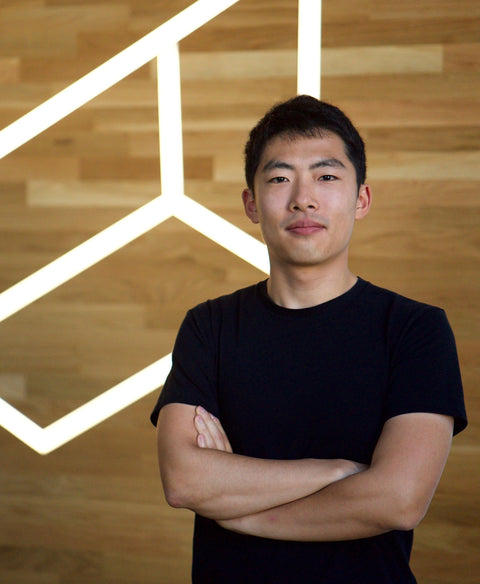
Robust Intelligence | KOJIN OSHIBA 大柴行人
Creating the First AI Firewall
Named one of Forbes' 30 under 30 in Enterprise Technology in 2024, KOJIN OSHIBA(大柴行人) grew up Japan before moving to the United States and earning his bachelor's degree in Computer Science from Harvard University, where he enjoyed studying both computer science and statistics. Kojin co-founded Robust Intelligence with his professor and advisor, Yaron Singer. Together, they researched robust machine learning with the goal to essentially fight off hackers for AI systems. Their key discovery was that AI is actually very vulnerable and prone to a variety of errors in ways traditional systems aren't. If you change one letter in a chain or a few small pixels in a photo, an AI will interpret a question or image completely incorrectly. This was a huge problem that they decided to try to solve for academia.
Robust Intelligence has created mechanisms that practitioners can use, developing the first true AI Firewall.

IROHA: What projects are you currently working on? What have you most recently completed or do you plan to do in the near future?
KOJIN: I work in the creation of robust intelligence, which is also what my co-founder and I named our company. I started by working with my professor of applied science and mathematics in college. We received seed funding from Sequoia while I lived in Boston. Then, I moved to San Francisco.
We currently have 60-65 employees and serve enterprise customers such as J.P. Morgan, Chase, Expedia, Deloitte, IBM, NEC, Tokyo Marine, Rakuten, etc.
My passion is thinking about what is going to happen with AI five to ten years from now. AI is becoming more integrated and embedded into what we do everyday. The general population does not actively think about it, but AI has been around for a long time already. Behind Google is an AI system for searching your queries. It's the same with YouTube, all the recommendations are generated by AI. The AI revolution has already been happening; it’s just accelerating at a much faster pace now. Every software will be AI software in a few years.
We want to make the security, like a candy wrapper, for these AI systems.
 IROHA: What are your thoughts regarding Asian glass ceiling issues?
IROHA: What are your thoughts regarding Asian glass ceiling issues?
KOJIN: In tech, the highest up you usually see for Asians is middle management for large companies, unless they are founders. In general, there are also not as many Asian investors. My cofounder is from Israel.
We all need to succeed and strengthen the community with intention. We need more VPs, C-Suite leaders, lawyers, etc. We need others like Jensen Huang, CEO of NVIDIA; Alfred Lin, venture capitalist at Sequoia and former COO, CFO, and Chairman of Zappos; and Tony Xu, cofounder and CEO of DoorDash. All of us trying to become a leader is the way to eventually achieve the equality we seek.
I don’t think there are any shortcuts.
IROHA: Based on your background, do you have any advice or a message for young people who want to follow in your footsteps?
KOJIN: One quote that I like to keep in mind is the advice from Paul Graham, founder of Y Combinator. He said, "Live in the future, and build what’s missing."
When we started the company, no one really cared about the security of AI. It was an RND project. Now, everyone cares about the security of AI, but if we had waited until now to start, it would have been too late.
You have to be interested and spend time in a space that not a lot of people would and just continue to pursue it. You have to build a future when the future hasn’t happened yet. You have to find a space where you see through more than others do and build something that would be valuable in a few years time.

IROHA: Outside of work, what are you most interested in right now?
KOJIN: I run. I run, work, eat, or sleep. My life is pretty simple. I like running marathons and doing long distance running. It’s very therapeutic. You learn to push yourself. When you’re running, you can't check your phone, so you’re forced to disconnect, decompress, and somewhat meditate. It is 20 miles roundtrip between my house and the Golden Gate Bridge. There is only one traffic light if you run by the bay. The weather here is perfect for it, not too hot and not too cold.
written by Jessica Woolsey
KOJIN OSHIBA's Website | LinkedIn
